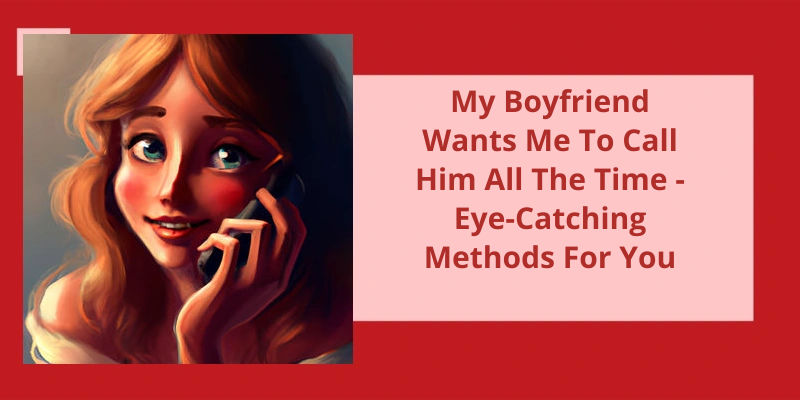In the world of dating, rejection is an inevitable part of the process. It can be disheartening and discouraging, causing many to question their worth and approach to finding love. However, there’s an alternative approach to dating – a concept known as "soft rejection" – that can help individuals navigate the murky waters of rejection with grace and resilience. Soft rejection dating – advanced, takes this concept a step further, providing individuals with the necessary tools and strategies to handle rejection in a more productive and empowering manner. By embracing a growth mindset, cultivating self-awareness, and honing their communication skills, individuals can improve their chances of building meaningful connections while maintaining their self-esteem and emotional well-being. Whether you’re new to the dating scene or have experienced your fair share of rejection, this guide aims to empower you with the knowledge and skills needed to thrive in the realm of modern dating.
What Is a Soft Rejection in Dating?
A soft rejection in dating can be best described as a subtle form of postponement or hesitation. It occurs when someone you’re interested in expresses their unavailability or unwillingness to pursue a romantic relationship, but without completely shutting you down. It’s like hitting the pause button on the dating process.
For example, they might be overwhelmed with an enormous workload, have important personal commitments, or be preoccupied with other responsibilities, making it challenging for them to find time for a relationship. In these cases, they might genuinely be interested in you, but the timing simply isnt favorable for them right now.
Another scenario for a soft rejection could stem from the need for additional time to assess the connection and build a stronger foundation. They may want to get to know you better before committing to a romantic involvement or taking things to the next level. This cautious approach indicates that they’re interested but need more certainty or assurance before fully investing emotionally.
It could be due to recent heartbreak, personal growth, or a desire to focus on oneself before seeking a romantic relationship. This type of rejection doesn’t necessarily reflect your worth or appeal as an individual; instead, it signifies their own personal journey and timing. It’s important to respect their decision and give them the space they need.
Soft rejections can be challenging to navigate as they often leave room for ambiguity and uncertainty. However, maintaining open communication, expressing your understanding, and considering their perspective are crucial in handling these situations. Remember, a soft rejection isnt a definitive no, but rather an indication of the need for patience, understanding, and perhaps a reevaluation of the timing of your connection.
How to Recognize the Signs of a Soft Rejection in Dating
Recognizing the signs of a soft rejection in dating can be challenging, but it’s important to pay attention to certain cues. One common sign is when the person consistently avoids making concrete plans or postpones meeting up without offering alternative options. They may also start to respond less frequently to your texts or messages, showing a lack of interest or investment in the conversation. Another indicator could be when they cancel plans at the last minute, offering vague excuses or no explanation at all.
Additionally, if you notice a decrease in affectionate or intimate gestures, such as hugs or kisses, it may suggest that their feelings are fading. Keep an eye out for inconsistent behavior, where they may seem distant one day and then appear interested the next. This kind of inconsistency could imply mixed feelings or uncertainty.
It’s crucial to trust your instincts and openly communicate with the person about your concerns. While it may not always be easy to accept, recognizing the signs of a soft rejection can help you move forward with clarity and make more informed decisions about your dating life.
When it comes to credit card declines, there are two types: hard and soft rejections. Much like in dating, a soft rejection leaves room for hope and possibility, indicating a potential alternative solution. A hard rejection, on the other hand, is a clear and final denial with no room for negotiation. Understanding the difference between these two types of declines is crucial in order to effectively navigate the world of credit card transactions.
What Does a Soft Rejection Look Like?
Soft rejections in dating occur when someone gives a less definitive response rather than outright rejecting the other person. These can manifest in various forms such as being busy, needing to prioritize other commitments, or simply not providing a clear answer. For instance, if someone says, “Im busy Friday,” it implies they might be available on Saturday or Sunday. This form of rejection leaves room for potential future opportunities or dates. It suggests that the person isn’t completely uninterested, but circumstances prevent them from committing at that particular moment.
On the other hand, hard rejections in dating are more straightforward and definitive. They involve clear statements or actions that express a complete disinterest or dislike. A hard rejection would be something like, “I hate your guts,” which ultimately leaves no room for negotiations or future possibilities. In such cases, it’s advisable to move on as there’s little to no chance of salvaging the relationship or pursuing any further interactions.
Exploring the analogy of soft and hard credit card declines, similar principles apply. Soft credit card declines occur when there’s a temporary issue preventing a transaction from being approved. This can be due to reasons like insufficient funds or a temporary technical problem. A soft decline leaves the door open for the transaction to be retried or resolved, either by providing additional funds or addressing the underlying issue.
Examples of Common Soft Rejections in Dating
- Insufficient personal information.
- Poor grammar and spelling.
- Inappropriate or offensive content.
- Lack of effort in writing a personalized message.
- Negative or bitter attitude towards past experiences.
- Unrealistic or overly demanding expectations.
- Misleading or vague profile descriptions.
- Unattractive or low-quality profile photos.
- Being too self-centered or narcissistic.
- Coming across as desperate or overly eager.
- Engaging in disrespectful or offensive conversations.
- Being too pushy or clingy.
It’s important to remember that everyone experiences rejection at some point, and it’s completely normal to feel hurt or disappointed. When faced with a soft rejection, it’s crucial to treat yourself with kindness and compassion. Take some time for self-care and allow yourself to process your emotions without judgment. Avoid dwelling on the situation or being too hard on yourself. Instead, focus on healing and learning from the experience when you feel ready to do so.
How Do You Deal With Soft Rejection?
When faced with soft rejection in the dating realm, it’s important to treat yourself with compassion. It can be tough to experience rejection, but it’s crucial to remember that it doesn’t define your worth. Take the time to cocoon for a little while and allow yourself to heal. Focus on looking after your well-being and finding your way back to an even emotional keel. Be kind to yourself and avoid beating yourself up or overthinking the situation. Understand that it’s a learning experience, and when youre ready, youll glean valuable insights from it.
Avoid the temptation to compare yourself to others or dwell on what might have been. Each persons journey is unique, and what works for someone else may not work for you. Embrace your own path and trust that the right person will come along at the right time.
Learning From Rejection: Techniques for Reflecting on and Extracting Valuable Lessons From Experiences of Rejection in Order to Grow and Improve.
- Understand that rejection is a natural part of life.
- Allow yourself to feel the emotions associated with rejection.
- Reflect on the situation and identify key aspects that led to the rejection.
- Consider seeking feedback from others to gain different perspectives.
- Focus on the lessons learned rather than dwelling on the rejection itself.
- Use rejection as an opportunity for growth and improvement.
- Develop resilience and a positive mindset to overcome future rejections.
- Learn from past experiences and apply those lessons to future endeavors.
- Recognize that rejection doesn’t define your worth or abilities.
- Seek support from friends, family, or a mentor during challenging times.
Source: Is it ok to ask someone out a second time after a soft …
Rejection in relationships can take various forms, and understanding the different types is crucial for navigating emotional bonds. Emotional abuse, neglect, abandonment, and the absence of affection and love are common manifestations of rejection. Such experiences can have lasting consequences, profoundly impacting individuals across their lifetime.
What Are the Different Types of Rejection in Relationships?
In the realm of relationships, rejection can take on various forms and affect individuals deeply. Emotional rejection, for instance, encompasses a multitude of experiences that can be likened to emotional abuse, neglect, abandonment, or a sheer absence of affection and love. This type of rejection can have long-lasting repercussions, leaving individuals grappling with it’s consequences for years to come. It often leads to deep-seated feelings of unworthiness and inadequacy, creating a significant barrier to developing trusting and healthy relationships in the future.
It’s crucial to note that these types of rejection aren’t mutually exclusive; they can often overlap or coexist within a relationship.
Understanding the different types of rejection and their impact is crucial for individuals to navigate these experiences with compassion and resilience and work towards healing and building healthy relationships in the future.
By reframing rejection as a chance for growth, embracing resilience, and adopting a positive mindset, a strong woman can navigate the tumultuous waters of rejection with grace and determination.
How a Strong Woman Handle Rejection?
Navigating rejection can be a challenging experience for anyone, but for a strong woman, it can be an opportunity for growth and self-reflection. The first step in handling rejection is to acknowledge and validate your emotions. It’s important to give yourself the space and permission to feel hurt, disappointed, or frustrated. Allow yourself to process these feelings without judgment, as they’re a natural response to rejection.
Once you’ve allowed yourself to feel your emotions, it’s essential to gain some distance from the situation to gain a more objective perspective. This can be achieved by taking a step back and analyzing the rejection from an outsiders point of view. By doing so, you can view the rejection as an opportunity for personal growth and learning. Ask yourself what lessons can be gleaned from this experience and how you can use it to become a better version of yourself.
A strong woman knows that rejection doesn’t define her worth or value. She understands that rejection is often a reflection of the other persons preferences, circumstances, or limitations, rather than a reflection of her own qualities.
She uses rejection as motivation to push herself further and strive for even greater success.
Overall, handling rejection requires emotional resilience, self-reflection, and a positive mindset.
Setting Boundaries: Discuss the Importance of Setting Boundaries in Relationships and How This Can Contribute to Handling Rejection in a Healthy Way.
Setting boundaries is crucial in any relationship, as it helps establish mutual respect, trust, and understanding between partners. By clearly defining our emotional, physical, and personal limits, we create a sense of security and predictability.
When boundaries are respected, both individuals feel valued and safe, fostering a healthy atmosphere for open communication and emotional growth. Boundaries also serve as a roadmap for handling rejection in a mature manner.
By having well-defined boundaries, we can differentiate between personal preferences and deal-breakers. This enables us to express our needs and desires while respecting those of our partner, even if it means accepting potential rejection.
When confronted with rejection, it’s essential to remember that boundaries aren’t about control or manipulation but rather about fostering self-respect and maintaining healthy dynamics within a relationship.
By respecting both our own and our partner’s boundaries, we can navigate rejection in a constructive manner, focusing on personal growth and finding healthier connections.
“Thanks for your honesty, it was fun hanging out. .. “Hey, thanks again for showing me that new restaurant, such a great pick. .. “It was fun hanging out and I wish you all the best.” .. “Thanks for letting me know.
How Do You Respond to Soft Rejection?
Sometimes, despite our best efforts, we face soft rejection in dating. It can be disheartening and difficult to know how to respond. However, learning how to respond gracefully to rejection is a skill that can help maintain your self-esteem and ensure that relationships, even if they don’t work out, end on a positive note. Here are 16 expert-approved responses to rejection text messages that you can keep on deck.
Firstly, expressing gratitude is always a good idea. Saying “Thanks for your honesty, it was fun hanging out” shows that you appreciate their openness and enjoyed the time you spent together. This response reflects your maturity and leaves the door open for future opportunities if both parties are open to it.
Another response that acknowledges their efforts and highlights the positive aspects of your interaction is saying, “Hey, thanks again for showing me that new restaurant, such a great pick.”. By focusing on the positive aspects of the date or experience, you show that you value their input and are more likely to leave with no hard feelings.
If you aim to end things amicably, saying “It was fun hanging out and I wish you all the best” is a respectful and courteous response. It shows that you’re accepting of their decision and genuinely want the best for them, even if it means not being a part of their life romantically.
Simple and straightforward responses like “Thanks for letting me know” can also suffice. They acknowledge the rejection without dwelling on it or making it awkward. This kind of response allows both parties to move forward without any emotional buildup or tension.
Reflecting on the Experience: Discussing How the Rejection Made You Feel and What You Learned From It Can Help in Personal Growth and Resilience.
Reflecting on the experience of rejection, particularly in the context of dating, can be a valuable tool for personal growth and resilience. When faced with a soft rejection in a dating situation, it’s natural to feel a range of emotions, including disappointment, frustration, and even sadness.
However, taking the time to process these feelings and reflect on the situation can provide insights and lessons that contribute to personal growth. Consider asking yourself questions like: Did I’ve unrealistic expectations? Was there something I could have done differently? Were there any red flags that I may have overlooked?
By engaging in this self-reflection, you can gain a better understanding of yourself and your dating patterns, helping you to make more informed decisions in future relationships. It also allows you to develop resilience, as you learn to bounce back from rejection and move forward with a positive mindset.
In conclusion, reflecting on the experience of soft rejection in dating can be a valuable opportunity for personal growth and development. By acknowledging your emotions, analyzing the situation, and learning from it, you can become more resilient and better equipped for future dating experiences.
Conclusion
By emphasizing clear communication, genuine connections, and personal growth, this approach encourages individuals to develop a deeper understanding of their own desires and needs. Through implementing soft rejections as a means of respectful and honest interaction, this method allows for more meaningful connections to be fostered, reducing the sting of traditional rejection while promoting emotional maturity and self-confidence. With it’s focus on empathy, self-awareness, and authentic connection, Soft Rejection Dating – Advanced paves the way for a more enjoyable, fulfilling, and respectful dating experience for all involved.






